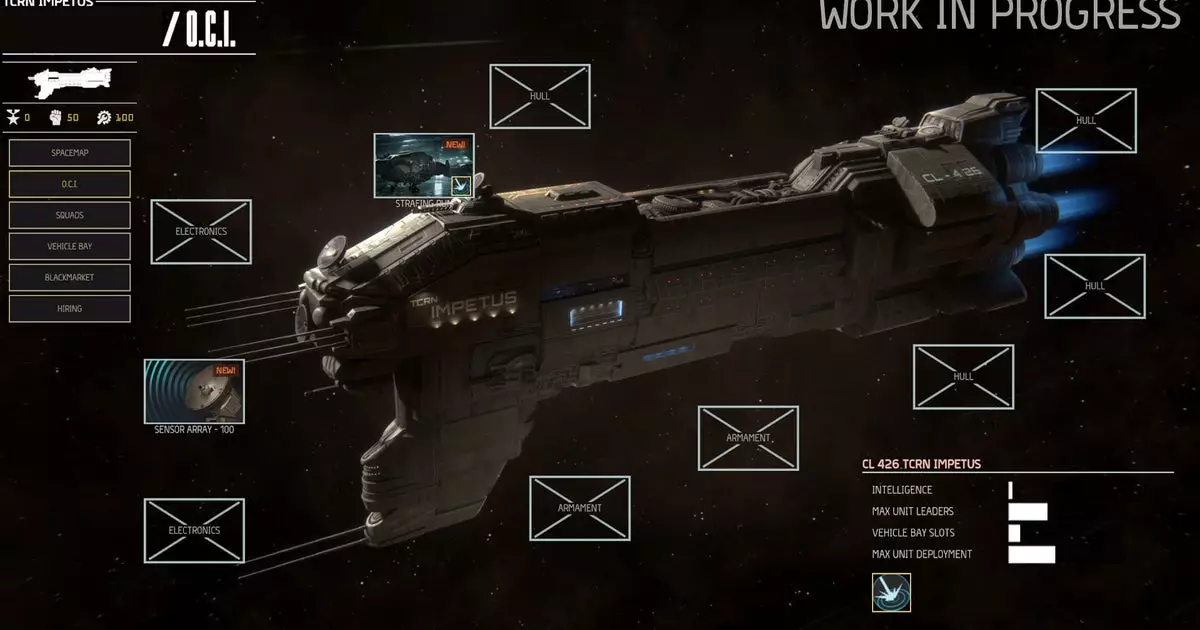As the gaming community anticipates the arrival of Overhype’s upcoming title, Menace, one aspect continually highlighted is its blend of tactical gameplay and rich role-playing elements. This fusion creates a compelling experience, though a careful analysis reveals that while the core mechanics are engaging, certain features may lean towards conventionality, leaving much to be desired in terms of innovation.
At its core, Menace is a turn-based tactical game where strategy is paramount. Players must manage a group of squads that undertake missions across various planets in the Wayback solar system. However, beyond just engaging in battles, the game requires players to navigate a variety of challenges that exist in between those intense skirmishes. This includes a dynamic starmap where players can view the political landscape, including the factions vying for power and influence.
It is here that the strategic depth can be explored further. Players must maintain their relationships with various factions by responding to distress calls and completing missions. Failure to address these requests can negatively impact reputation, leading to a more complicated gameplay experience. However, the methods of managing these relationships may leave players wanting fewer cliché mechanics, as many games in the genre entice players with similar reputation systems that do not always add to the overall experience.
Resource management emerges as another layer of gameplay complexity. Players collect promotion points to develop squads, while Operational Capability Improvements (OCI) allow for the enhancement of ship capabilities. However, some players might find the terms and acronyms used, such as “OCI,” to be a bit pretentious for what they represent—upgrades that often feel familiar rather than groundbreaking.
Furthermore, upgrades to the ship Impetus include not only direct boosts to combat effectiveness, like air support options or health restoration facilities but also features that provide intelligence to improve reconnaissance during missions. This aspect of gameplay is notable, as it underscores the importance of information gathering over brute firepower—a distinction that can create a more tactical approach to the game. Yet, balancing an effective reconnaissance strategy with the available upgrades could present a challenge that some players may find tedious over time.
The description of the crew as “motley” hints at the chaotic environment players will have to navigate. Players are entrusted with resolving interpersonal conflicts, dealing with morale issues, and managing various unpredictable incidents that can arise during downtime. While this could add an interesting dimension to the game, it’s intuitive alongside the tactical elements, almost as an afterthought. The potential depth of these interactions stands in contrast to the often-played trope of crew management, which can feel repetitive rather than innovative.
Using crew management as an integral aspect of gameplay could open new strategic possibilities, allowing for the nurturing of unique character traits to influence mission outcomes. Unfortunately, it remains to be seen whether that depth will be realized in Menace.
Customization options such as the armory, where players can equip their squads with weapons, armor, and vehicles, also play a significant role in building the strategic tone of the game. Each squad leader boasts unique perks and personal traits, adding a hint of individuality to the otherwise regimented military aesthetic. While these elements reflect a careful approach to character development, the sense of uniqueness could become diluted when applied to the standard RPG formula.
The developers have promised further insights into features like the black market and interconnected missions, enticing narratives that could elevate the gameplay experience. However, there’s a lingering concern that the fundamental mechanics may lack the transformative gimmick many players hope for, thus rendering the overall experience predictable.
Menace presents itself as an intricate tapestry of tactical and RPG elements. While there are moments of brilliance, the game has yet to step outside the box that has defined many turn-based titles in recent years. The challenge lies in ensuring that the strategic layer enhances the battles rather than becoming simply the bread of a familiar sandwich. As we eagerly await the launch of Menace, the hope remains that the developers can elevate the gameplay experience beyond conventional offerings, creating something impactful in a saturated landscape.


Leave a Reply